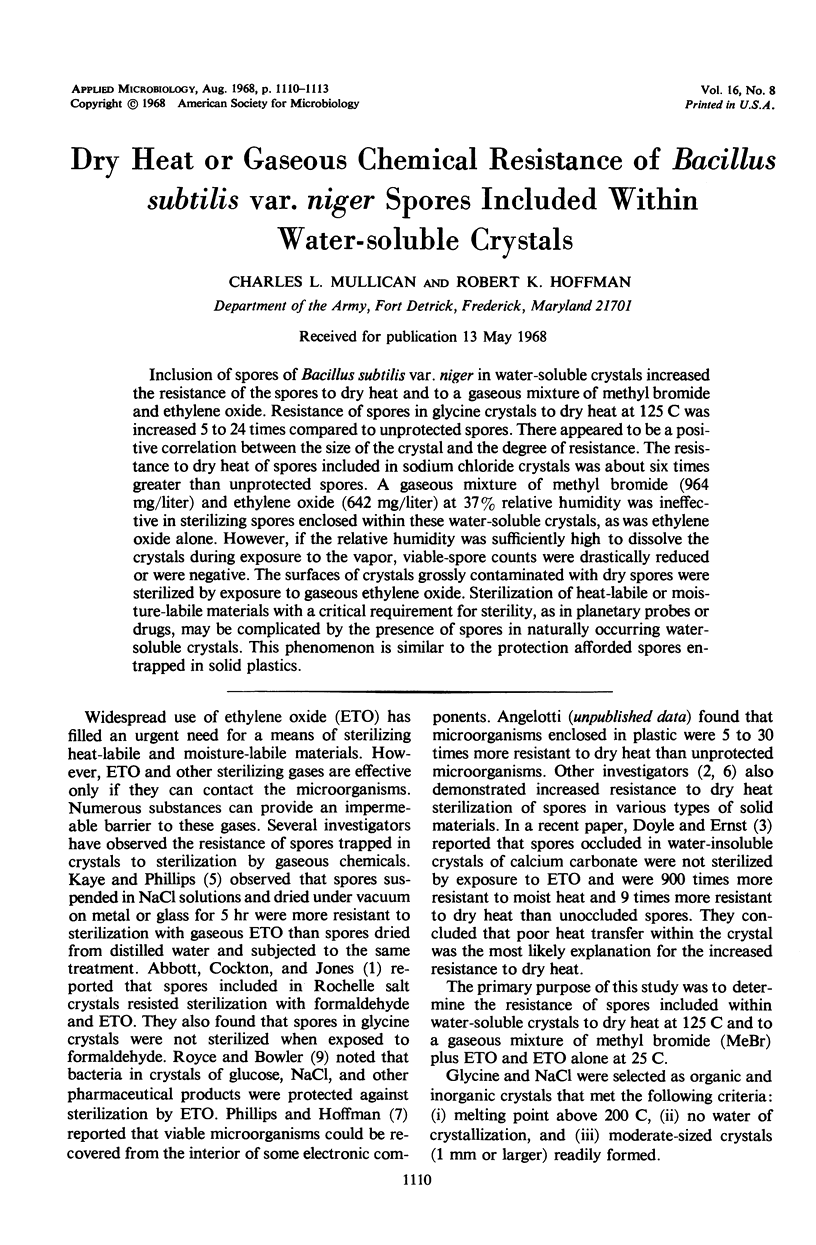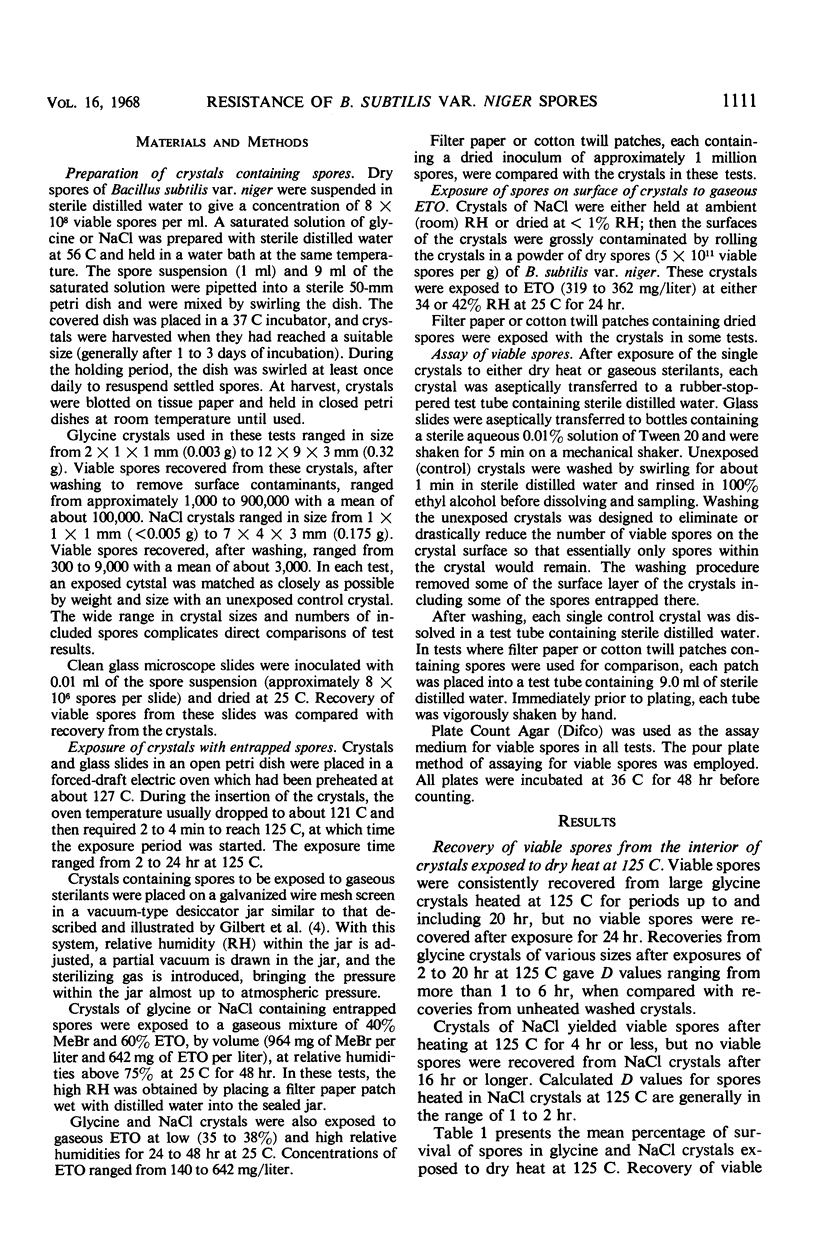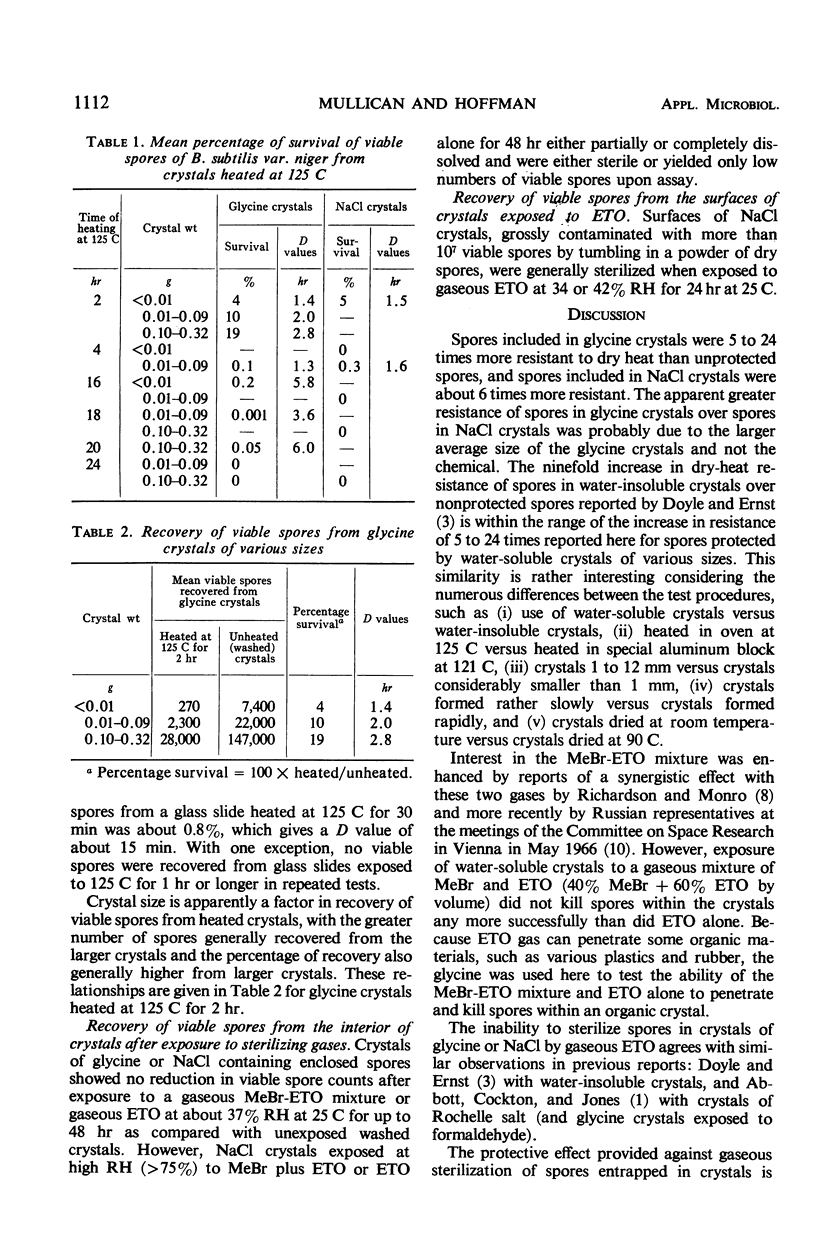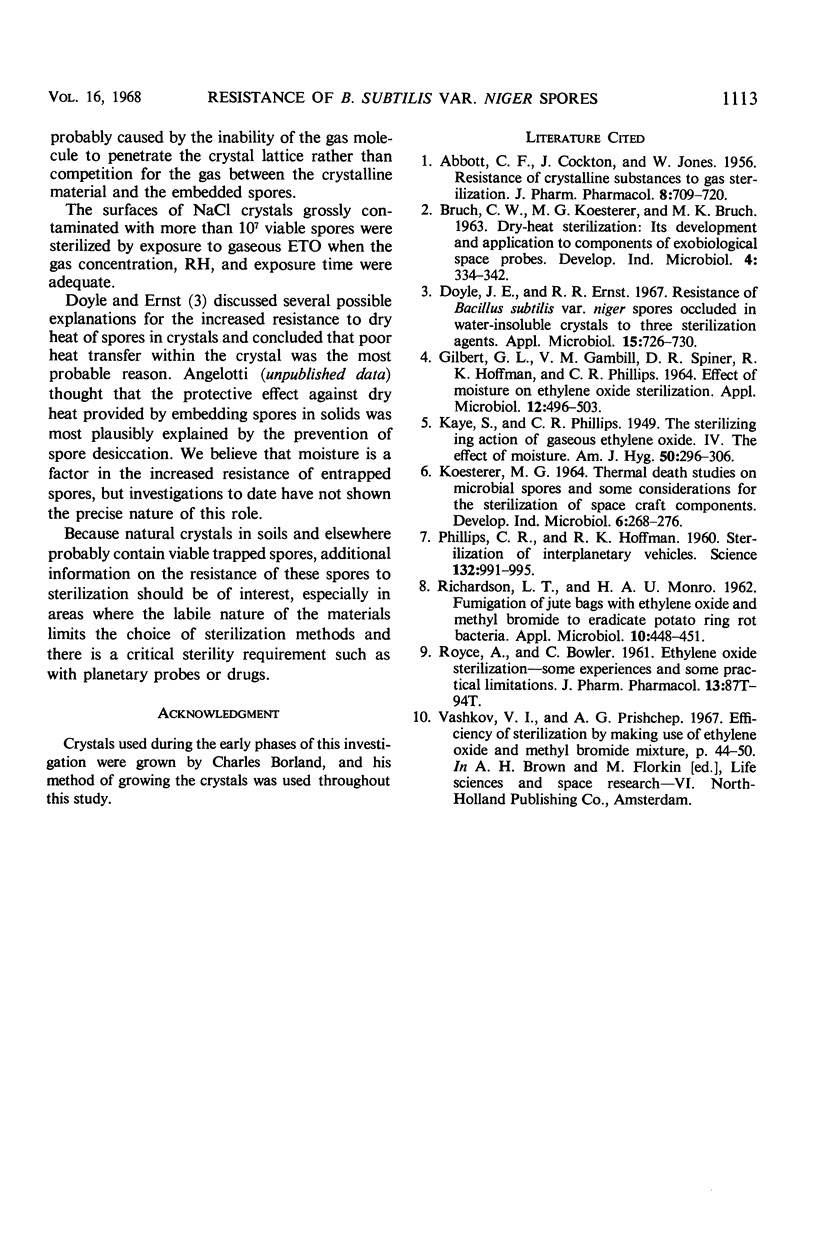Abstract
Inclusion of spores of Bacillus subtilis var. niger in water-soluble crystals increased the resistance of the spores to dry heat and to a gaseous mixture of methyl bromide and ethylene oxide. Resistance of spores in glycine crystals to dry heat at 125 C was increased 5 to 24 times compared to unprotected spores. There appeared to be a positive correlation between the size of the crystal and the degree of resistance. The resistance to dry heat of spores included in sodium chloride crystals was about six times greater than unprotected spores. A gaseous mixture of methyl bromide (964 mg/liter) and ethylene oxide (642 mg/liter) at 37% relative humidity was ineffective in sterilizing spores enclosed within these water-soluble crystals, as was ethylene oxide alone. However, if the relative humidity was sufficiently high to dissolve the crystals during exposure to the vapor, viable-spore counts were drastically reduced or were negative. The surfaces of crystals grossly contaminated with dry spores were sterilized by exposure to gaseous ethylene oxide. Sterilization of heat-labile or moisture-labile materials with a critical requirement for sterility, as in planetary probes or drugs, may be complicated by the presence of spores in naturally occurring water-soluble crystals. This phenomenon is similar to the protection afforded spores entrapped in solid plastics.
Full text
PDF



Selected References
These references are in PubMed. This may not be the complete list of references from this article.
- ABBOTT C. F., COCKTON J., JONES W. Resistance of crystalline substances to gas sterilisation. J Pharm Pharmacol. 1956 Oct;8(10):709–720. doi: 10.1111/j.2042-7158.1956.tb12202.x. [DOI] [PubMed] [Google Scholar]
- Doyle J. E., Ernst R. R. Resistance of Bacillus subtilis var. niger spores occluded in water-insoluble crystals to three sterilization agents. Appl Microbiol. 1967 Jul;15(4):726–730. doi: 10.1128/am.15.4.726-730.1967. [DOI] [PMC free article] [PubMed] [Google Scholar]
- GILBERT G. L., GAMBILL V. M., SPINER D. R., HOFFMAN R. K., PHILLIPS C. R. EFFECT OF MOISTURE ON ETHYLENE OXIDE STERILIZATION. Appl Microbiol. 1964 Nov;12:496–503. doi: 10.1128/am.12.6.496-503.1964. [DOI] [PMC free article] [PubMed] [Google Scholar]
- KAYE S., PHILLIPS C. R. The sterilizing action of gaseous ethylene oxide; the effect of moisture. Am J Hyg. 1949 Nov;50(3):296–306. doi: 10.1093/oxfordjournals.aje.a119362. [DOI] [PubMed] [Google Scholar]
- PHILLIPS C. R., HOFFMAN R. K. Sterilization of interplanetary vehicles. Science. 1960 Oct 14;132(3433):991–995. doi: 10.1126/science.132.3433.991. [DOI] [PubMed] [Google Scholar]
- RICHARDSON L. T., MONRO H. A. Fumigation of jute bags with ethylene oxide and methyl bromide to eradicate potato ring rot bacteria. Appl Microbiol. 1962 Sep;10:448–451. doi: 10.1128/am.10.5.448-451.1962. [DOI] [PMC free article] [PubMed] [Google Scholar]



